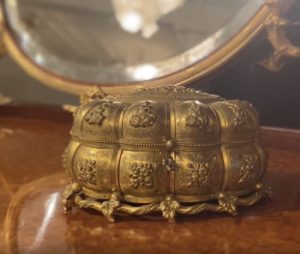Guillaume y Jean-Michel Grohé
Un gran y excepcional reloj de sobremesa de estilo Luis XVI en bronce dorado y mármol blanco
£15,500
A Large and Exceptional Louis XVI Style Gilt-Bronze and White Marble Figural Mantel Clock, By Grohé Frères, Paris. The dial signed ‘Grohé, A Paris'....
Dimensiones
Height: 45 cm (18 in)Ancho: 48 cm (19 in)
Profundidad: 42 cm (17 in)
Descripción
A Large and Exceptional Louis XVI Style Gilt-Bronze and White Marble Figural Mantel Clock, By Grohé Frères, Paris.
The dial signed ‘Grohé, A Paris’. The movement stamped with ‘Japy Frères’ roundel to the backplate.
Eight-day twin-train movement with outside countwheel striking on a bell.
Of impressive size this fine gilt-bronze and marble clock has a circular white enamel dial with Roman numerals and inscribed ‘Grohé, A Paris’ to the centre behind a hinged glazed bezel. The case is finely cast with a charming figure of Cupid seated with a dove and scribbling onto a scroll which rests over the dial of the clock. The case is raised on a white marble oval base mounted with a laurel cast band.
Guillaume & Jean-Michel Grohé went into partnership in 1829 and formed the atelier “Grohé Frères” in 1847. They went on to supply the highest quality furniture, furnishings, clocks, and bronzes to European royalty including Prince Albert at the Paris Exhibition of 1855.
Francés, Circa 1870.
Japy Frères
Frédéric Japy (1749-1812) was apprenticed in Montbeliard to his clockmaker uncle, and returned to his home town of Beaucort, setting up as a clockmaker, and an organiser of local clockmakers into a company – the company expanded and were medal winners at many of the International Exhibitions throughout the 19th century under the aegis of his sons, eventually closing after the First World War.
Fecha
Alrededor de 1870
Origen
Francia
Medio
Gilt-Bronze
Firma
The dial signed ‘Grohé, A Paris'. The movement stamped with ‘Japy Frères’ roundel to the backplate.
Guillaume and Jean-Michel Grohé, worked together from 1829 until Jean-Michel retired in 1861, the younger brother Guillaume continuing until 1884. They exhibited at the French Industrial Exhibition in 1834, and in 1847 became known as Grohé Frères with Guillaume the principal partner.
Guillaume supplied many royal houses, including Queen Victoria, from 1862 onwards. He was also said to have made a great impression on, and supplied furniture to King Louis Philippe, Emperor Napoléon III and Empress Eugénie. Guillaume favoured the Louis XVI style but made pieces in differing styles, exhibiting almost continually from 1834 to 1878. Guillaume was awarded the Légion d‚’Honneur in 1849.
The work of Grohé was praised in the 1867 Paris Exposition Universelle as ‚‘supérieurs √† ceux de Riesener et Gouthière‚’ (‚‘superior to those of Riesener and Gouthière‚’).
Bibliography:
Meyer, Jonathan. Great Exhibitions – London, New York, Paris, Philadelphia, 1851-1900, Antique Collectors’ Club, (Woodbridge, UK), 2006; pps. 97, 98, 100, 230.
Ledoux – Lebard, Denise. Les Ébénistes du XIXe siècle, Les Editions de L’Amateur, (Paris), 1984; pp. 237-244.
Mestdagh, Camille & Lécoules, Pierre. L’Ameublement d’Art Français, 1850-1900, Les Editions de L’Amateur, (Paris), 2010.
TAMBIÉN TE PUEDE GUSTAR
-
£5,000 Añadir a la cesta
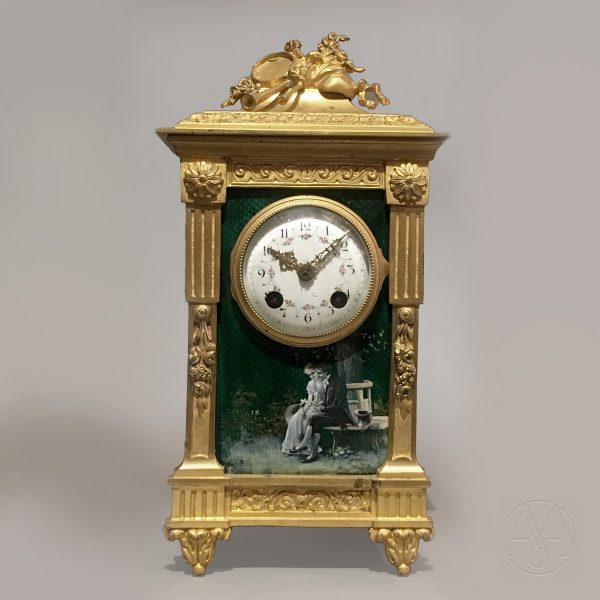
Vincenti et Cie.
A Fine Louis XVI Style Enamel Mantel Clock
-
£38,000 Añadir a la cesta
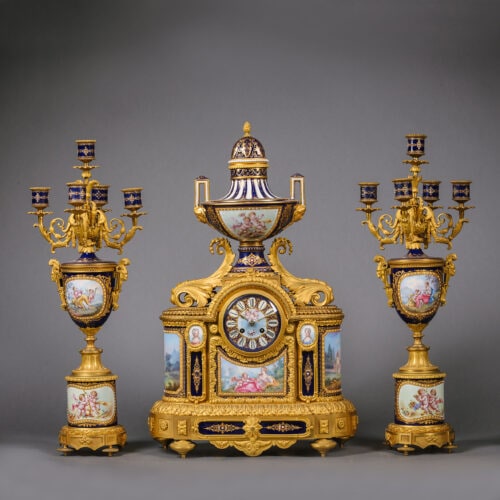
Sèvres (Estilo)
Fina guarnición de reloj de tres piezas de estilo Napoleón III en bronce dorado y Sèvres
-
£84,000 Añadir a la cesta
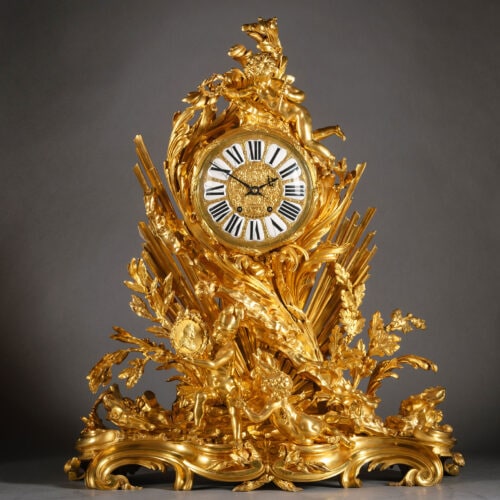
Henry Dasson
Pendule À La Glorie du Roi', un gran reloj de manto estilo Luis XV
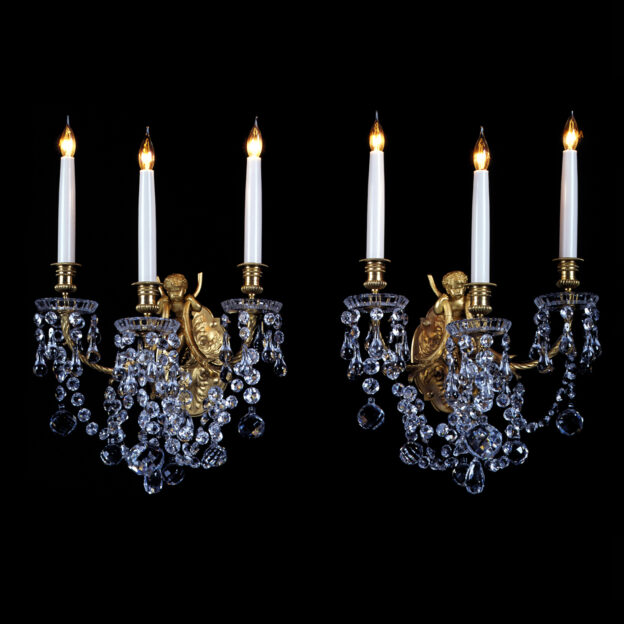
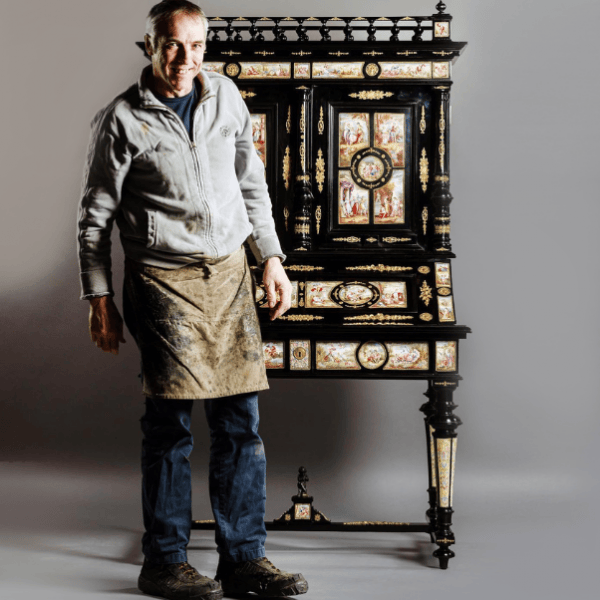
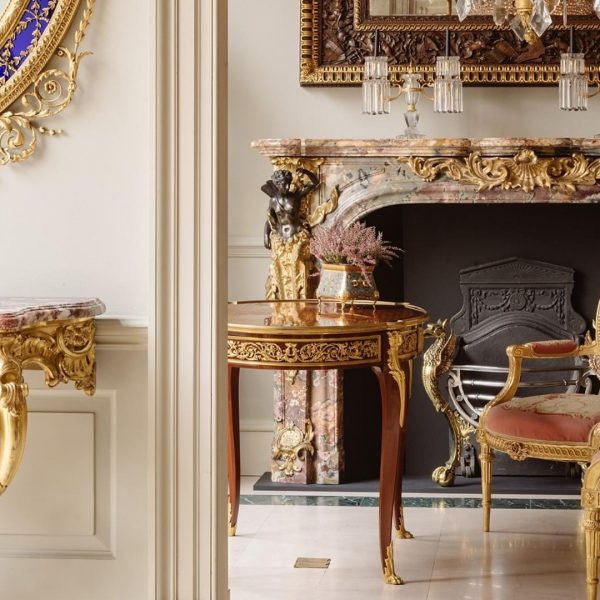
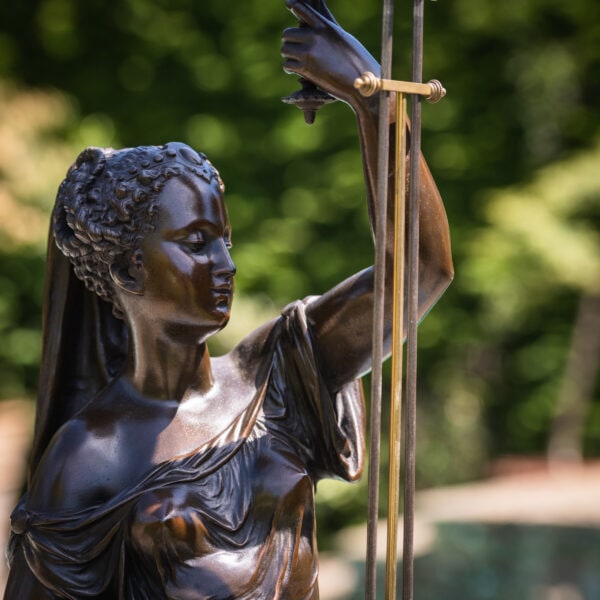
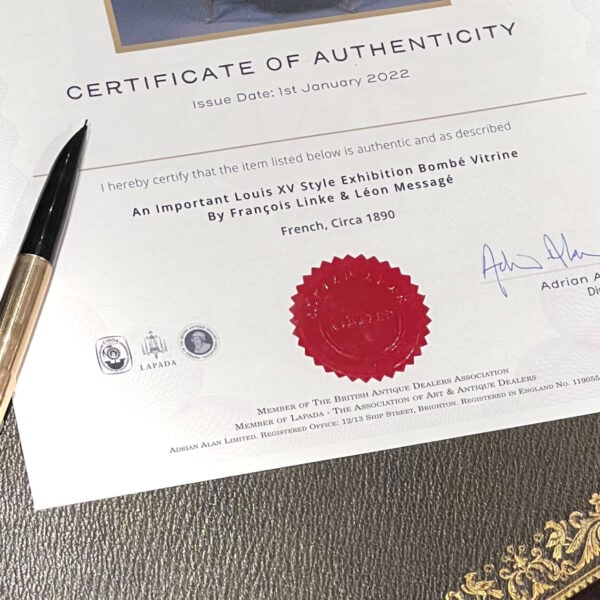
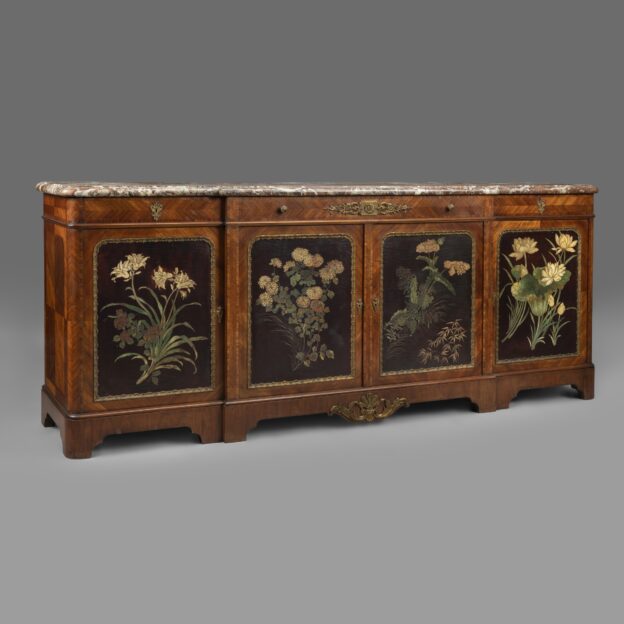

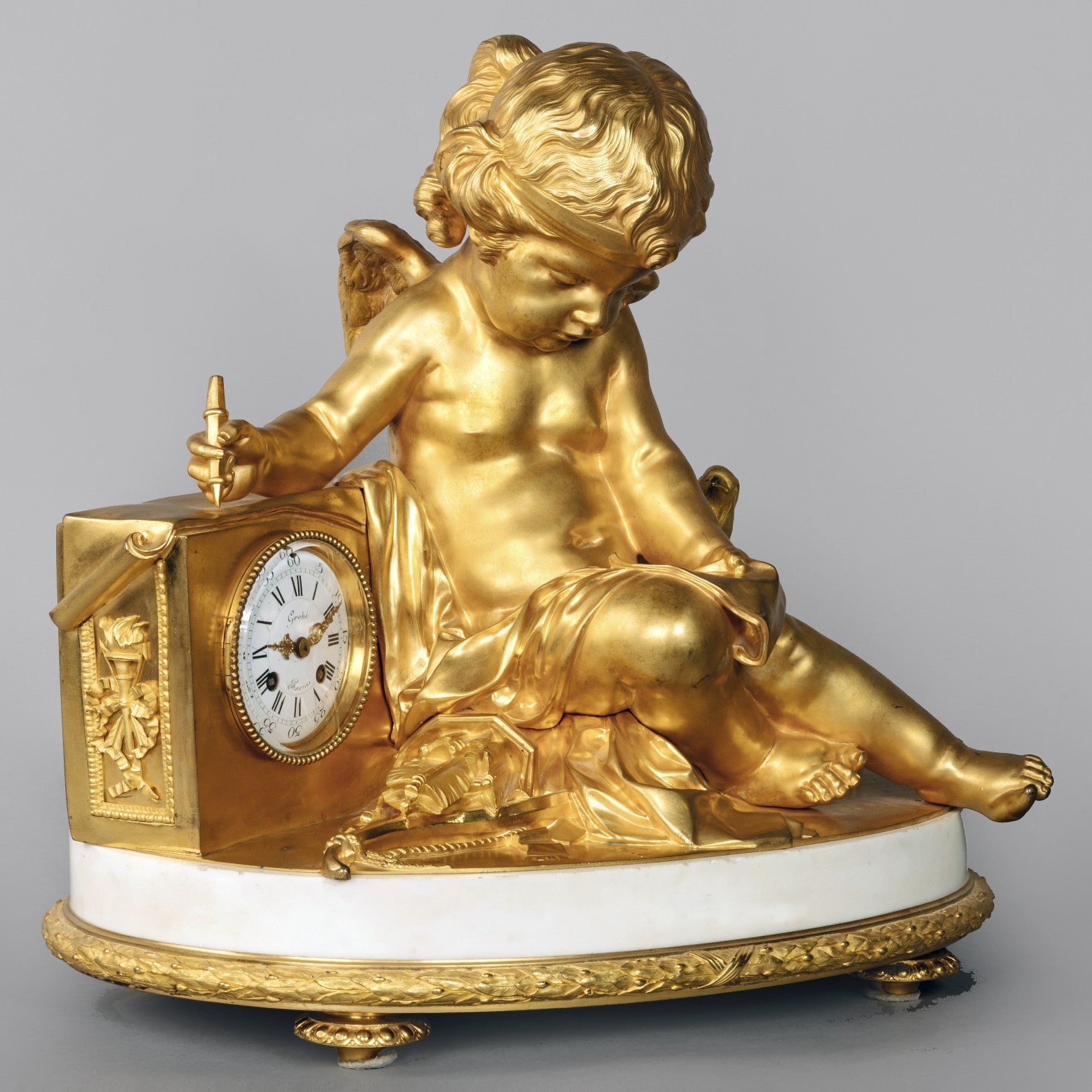
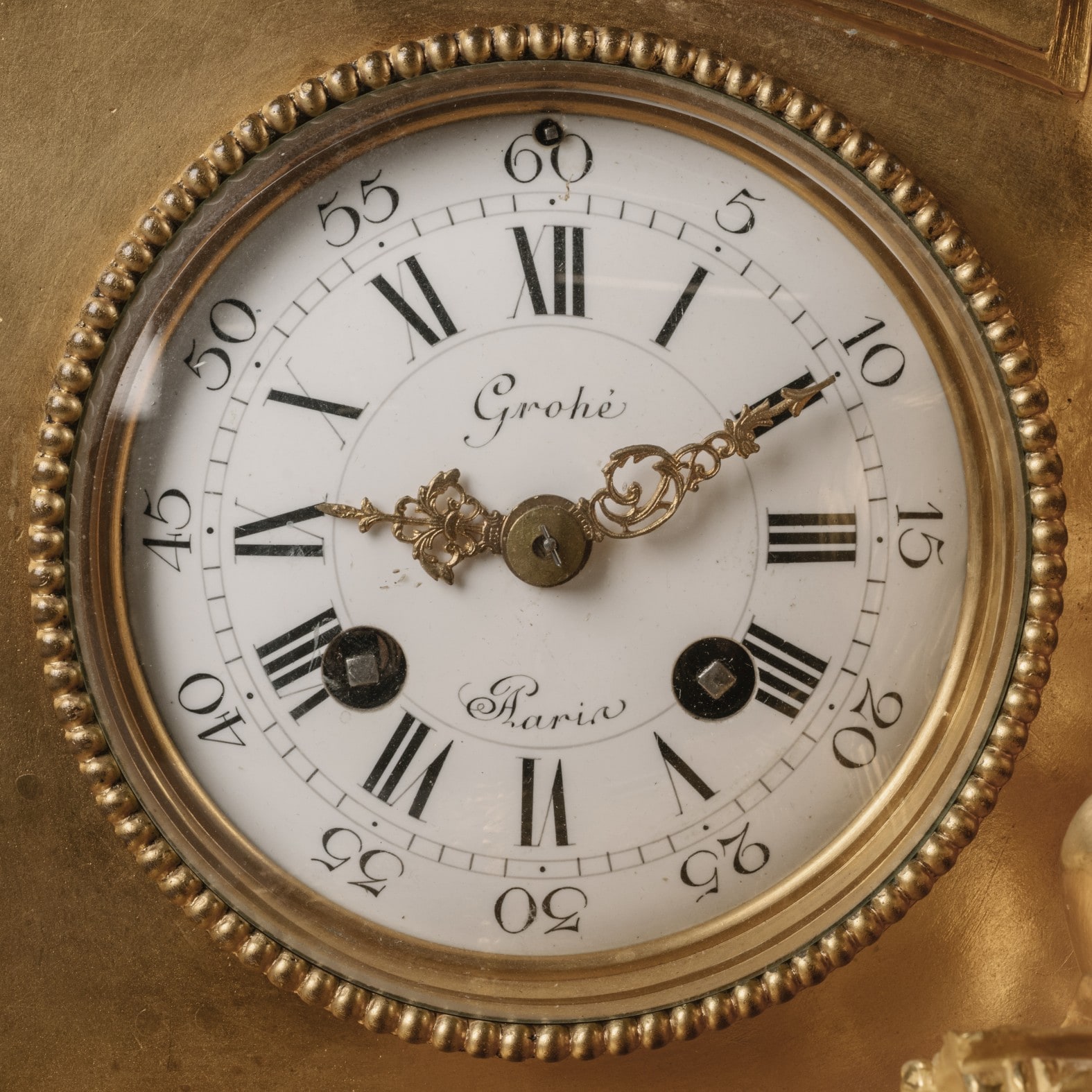
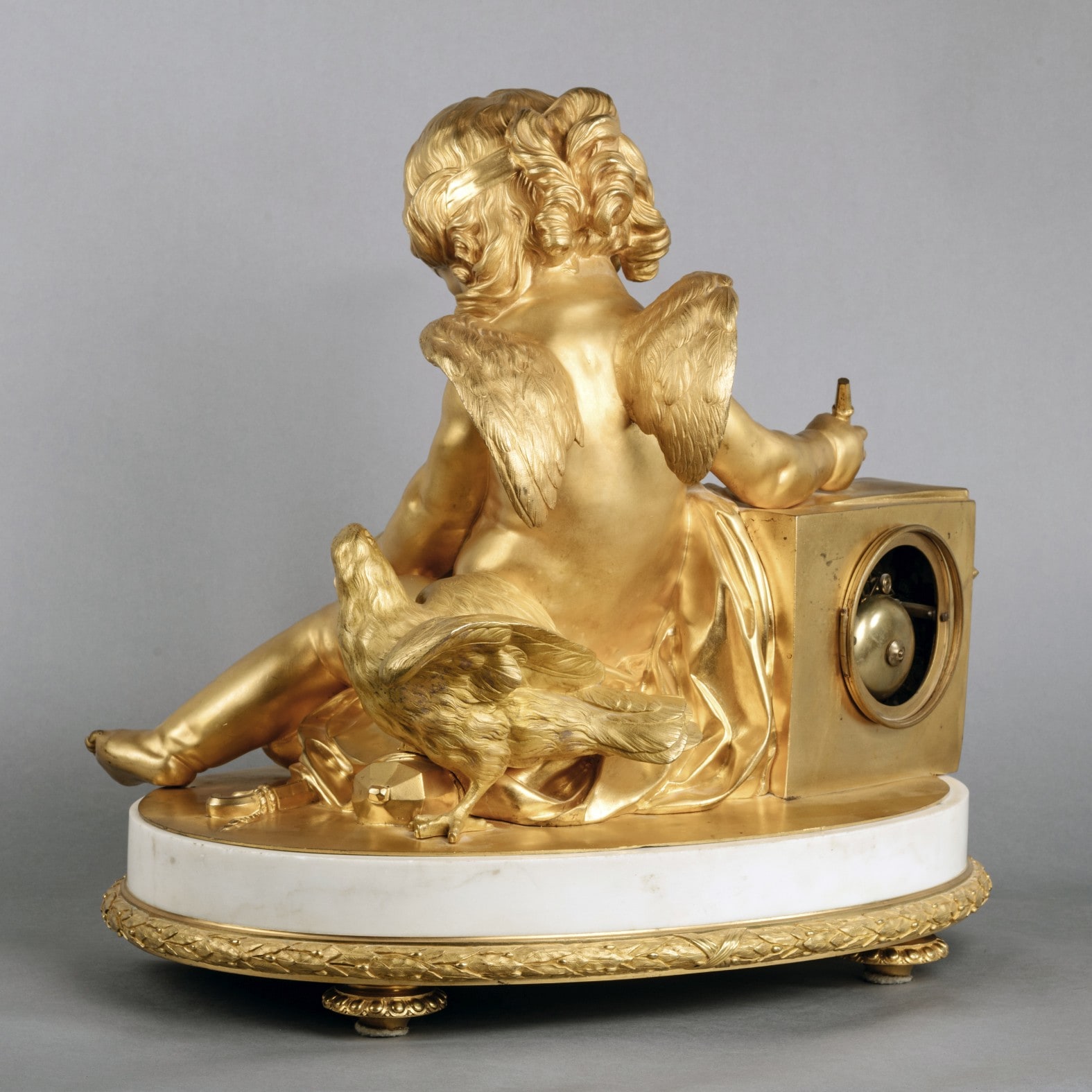
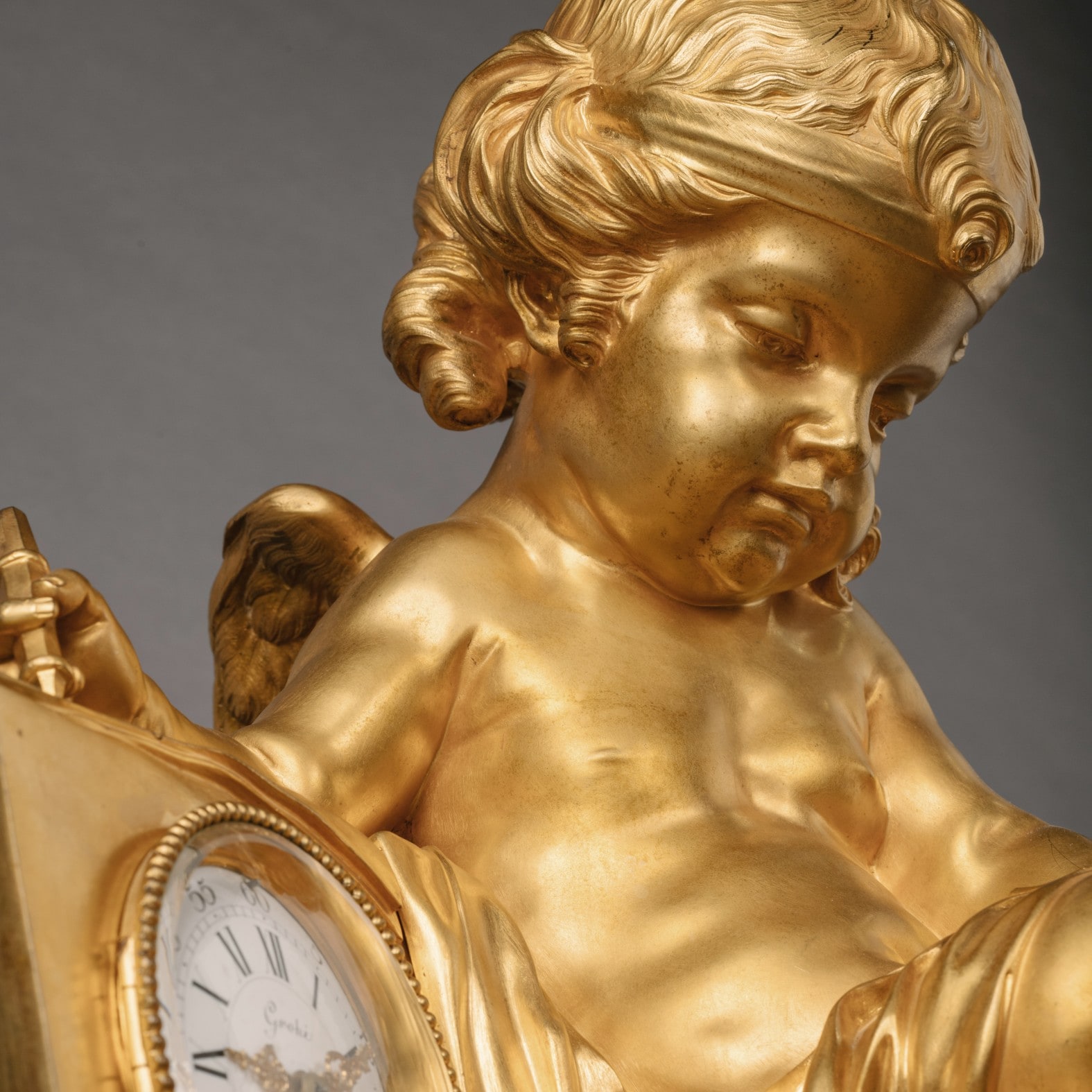


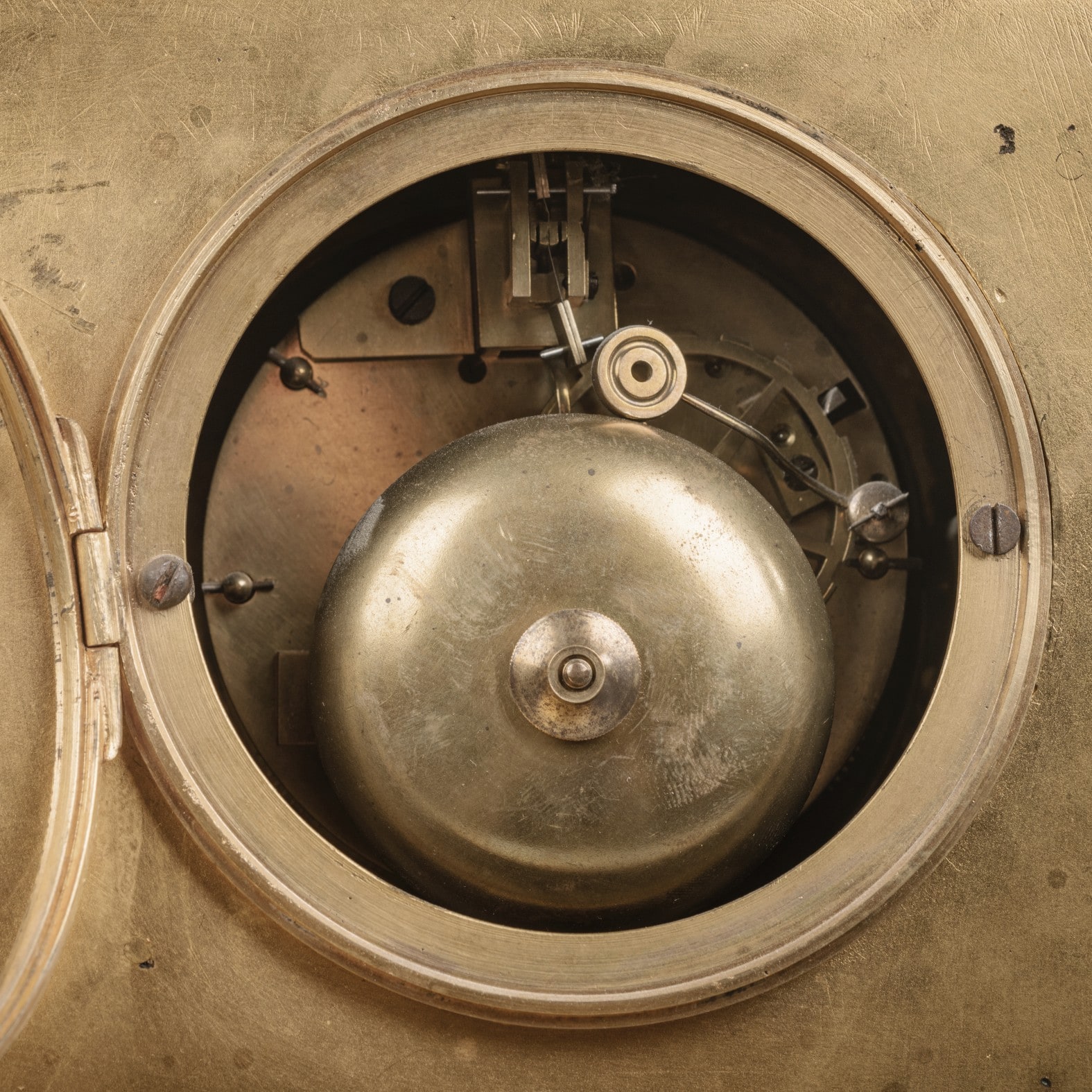

 Imprimir
Imprimir